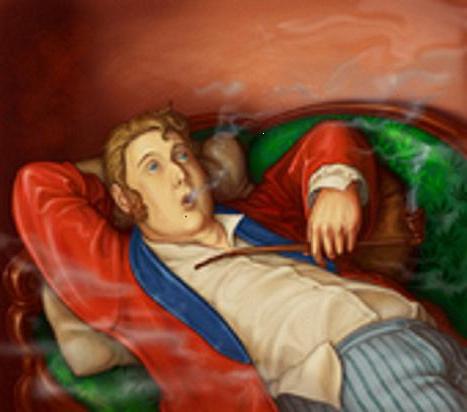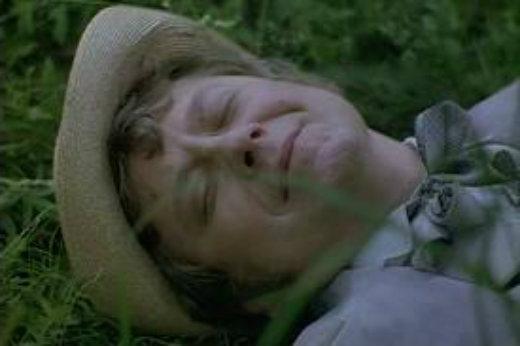When studying the creative heritage of Ivan Alexandrovich Goncharov, the question often arises: “Where to start the personal analysis of Oblomov?”
“Sleep is the starting point for a deep understanding of the protagonist,” literary critics respond. Why did the classic put such a deep meaning in a dream? Obviously, the classic with this technique immediately “killed two birds with one stone”: firstly, the explanation presented by him in a dream to the reader turned out to be short, concise, capacious. Indeed, a dream does not last long. And secondly, with such brevity Goncharov did not violate the dynamics of the development of the main plot - the consistent display of the landowner's self-destruction cherished by himself to hypertrophied dimensions by laziness. The topic of this article is Oblomov’s dream. The analysis of the corresponding episode of the novel shows: the dream, as it were, consists of three parts. What does not happen in the power of Morpheus?
Sleep. Childhood in Oblomovka

Having closed his eyelids, the 32-33-year-old Ilya Ilyich sees himself as a seven-year-old boy in the village family estate of his parents. It is surrounded by comfort and ... idleness. Around the old manor house in the middle of the village of Oblomovka - a lot of interesting for an inquiring boyish mind. It is the role of upbringing that the analysis of the episode “Oblomov’s Dream” reflects. Parents do not allow him to play with peers on the street and, of course, do not allow him to work. “Work is boredom, it is the lot of Ivanov and Zakharov!” - From childhood they inspire him. Around the child - a whole host of nannies and nannies. His every desire is warned. One has only to want - and here it is! The child does not need to go anywhere, strive for something. What for? They will bring everything to him and deliver. Gradually, under the influence of this stupefying and asphyxiant guardianship, little Ilyusha loses the most precious thing - a child’s lively gleam in his eyes, his mischief is numb, ceases to interest what teenagers should dream about. He destructively raises a man the whole family way, where in the morning everyone is preparing for dinner, and having eaten, they are invincibly dozing.
Fairy tales. Deception of poetic nature
A further episode continues the personal analysis of Oblomov. The dream carries him to the nursery, where he hears the tales told to him by the great novice of the story - the nanny. The bright, creative imagination of Ilyusha turns him into a character of Pushkin's tales, a folk epos. Tales of a nanny, like a computer for our peers, immerse him in a special virtual world, where he feels himself to be an epic hero, then a sage, "opening the eyes of humanity." It is doubly dangerous that these stories are “superimposed” on an absolutely passive pastime. As a result, the child is no longer interested in peer games or the work that adults do. All this is boredom compared to the bright and magnificent fairy-tale world. The significance of this scene is also evidenced by the Dobrolyubov analysis of Oblomov. “Dream is Goncharov’s bright creative find,” said a brilliant literary critic.
Verkhlevskaya elementary school

This part of sleep is no longer in childhood, but in adolescence. Still, the undergrowth is forced to periodically leave a cozy, caring estate, to leave a pleasantly passive, non-binding life. He has to leave his family island of idleness for a while. The reason is schooling. It is only unusual and strange for the boy to communicate with the teacher - the German Bogdan Ivanovich Stoltz, demanding, energetic, meticulous. And the son of the teacher, Andrei, not only “cramming” the lessons, he also plays and fights with the village children after them. They are wonderful people. However, young Oblomov calms down when he sees that the Stolts are the only ones in his circle. He sees everything with a keen childish gaze: the whole village of Verkhlevo lives in the same way as Oblomovka: they sleep for a long time, work a little, live life in a drowsy state. “Laziness rules the world,” Ilyusha finally decides. This conclusion ends with Oblomov's personal analysis. The dream shows us the deep essence of the personality of the hero, whose very foundation was laid in childhood.
Conclusion
The key character of the dream episode to a general understanding of both the personality of Ilya Ilyich and the essence of the work is undeniable. A negative example of Oblomov’s upbringing is a call for each person to actively and consistently build a vibrant, active, meaningful life for themselves.